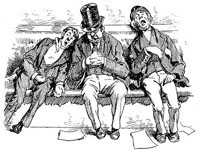
Why the United Methodist Bishops’ Stance Against the War on Terrorism Is Incoherent
PEACE BEGINS IN THE WOMB
On November 9, 2001, the Council of Bishops of the United Methodist Church released a pastoral letter to the membership condemning the war on terrorism. This condemnation came in the form of the following sentences: “We, your bishops, believe that violence in all of its forms and expressions is contrary to God’s purpose for the world. Violence creates fear, desperation, hopelessness and instability.” Ultimately, this was an attempt by the bishops to be prophetic, and while it is honorable, their letter is problematic.
According to the Book of Discipline 2000, the constitution of the United Methodist Church, the first duty of a United Methodist bishop is to “guard the faith, order, liturgy, doctrine, and discipline of the Church.” The pastoral letter of November 9 borders on a dereliction of duty as defined by the Book of Discipline 2000. I say this because the bishops call for a pacifist response to the violence committed by the guilty on September 11, while encouraging violence against innocents in the womb. Through a close reading of the writings of John Wesley, Methodism’s founder, and church tradition, I will show that the Council of Bishops has strayed from both, thus moving the denomination increasingly into the position of false prophecy.
John Wesley on War
The heart of the November 9 pastoral letter quoted above is this sentence, “We, your bishops, believe that violence in all of its forms and expressions is contrary to God’s purpose for the world.” This position is not in keeping with Wesley’s own position.
You May Also Enjoy
If, God forbid, the need should arise, is it licit for a Christian to resist evil by force, to take up a weapon and kill an aggressor?
It is an error to allow officialdom to determine the entirety of the agenda of the public debate, to silence the moralist by dismissing his questions as idle chatter.
The fact that some arguments against strategic nuclear deterrence are faulty does not permit the conclusion that there are no compelling moral arguments against it.

